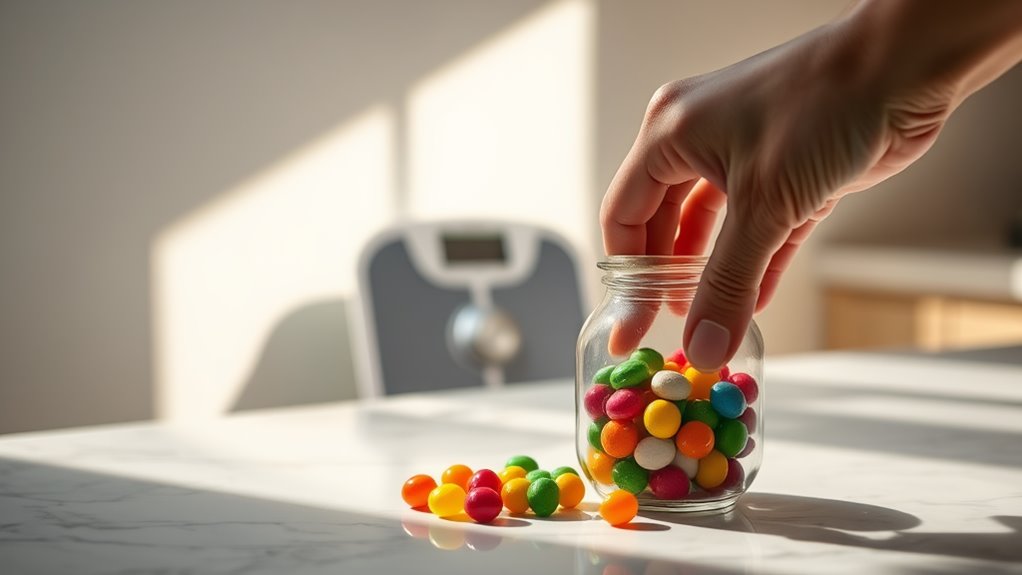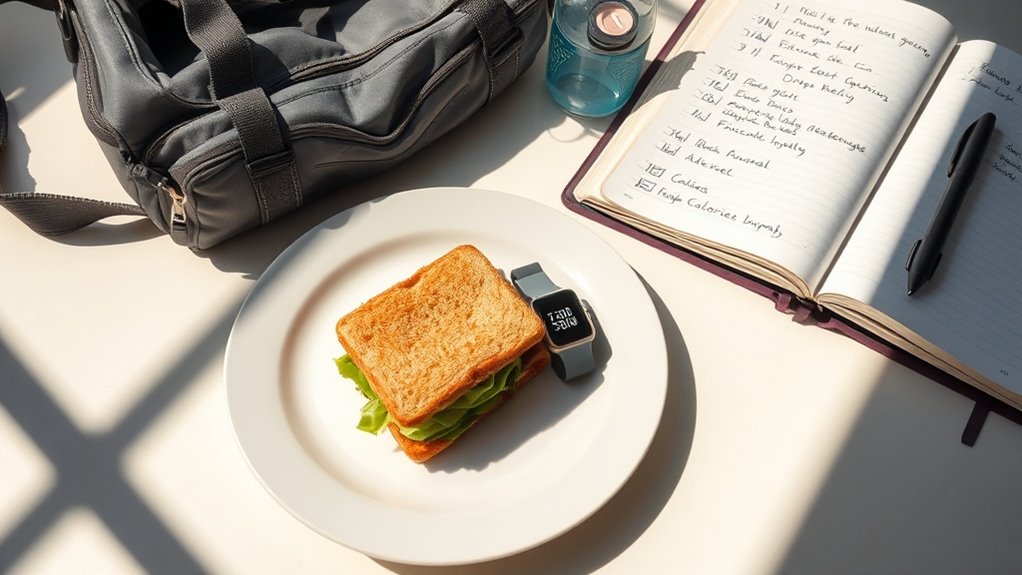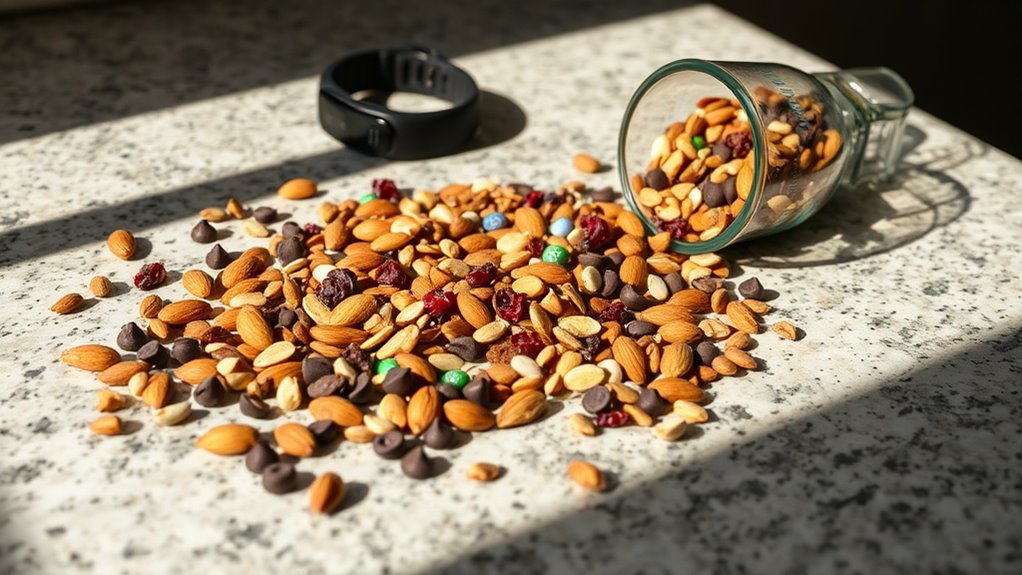You’re Not Losing Weight Because of This One Tiny Habit
You might think a single bite won’t hurt, but mindless snacking can be your weight loss nemesis. It sneaks in extra calories that you’re often unaware of, derailing your progress without you even realizing it. As you munch while watching TV or scrolling through your phone, those hidden calories pile up. So, how can you break free from this tiny yet destructive habit and regain control over your eating? Let’s explore the surprising factors at play.
Key Takeaways
- Mindless snacking adds hidden calories, sabotaging weight loss efforts without your awareness.
- Poor sleep increases hunger hormones, leading to cravings for unhealthy foods and overeating.
- Liquid calories from sugary drinks contribute significant daily caloric intake without satisfying hunger.
- Portion distortion from larger plates and restaurant servings leads to unintentional overeating.
- Stress and emotional eating create a cycle of cravings and guilt, hindering weight management.
The Impact of Mindless Snacking
Have you ever found yourself mindlessly munching on snacks while binge-watching your favorite show?
This small habit can ruin fat loss without you even realizing it.
When you snack absentmindedly, you often underestimate portion sizes and calories consumed, sabotaging your weight loss efforts.
You might think those chips or that ice cream won’t matter, but they add up quickly. Instead, try being intentional with your snacking.
Opt for healthier choices and portion out your treats beforehand. Additionally, practicing mindfulness during snacking can lead to better food choices and support your weight loss journey.
The Role of Sleep in Weight Management
How well are you sleeping?
Your sleep quality plays a crucial role in weight management.
When you skimp on sleep, it can lead to weight gain and hinder your weight loss efforts.
Here’s how sleep affects your goals:
- Poor sleep increases hunger hormones, making you crave unhealthy foods.
- Lack of rest lowers your metabolism, burning fewer calories.
- Sleep deprivation may lead to mindless snacking, sabotaging your diet.
Furthermore, adequate rest helps regulate hunger hormones effectively, supporting your weight loss journey.
Prioritizing quality sleep isn’t just about rest; it’s a fundamental aspect of achieving your weight goals.
The Influence of Liquid Calories
What’s lurking in your drink? You might be surprised at how many liquid calories sneak into your daily intake. Sugary sodas, fancy coffee drinks, and even juices can pack a hefty caloric punch, often without you realizing it. These calories don’t fill you up like solid foods do, leading to overeating later. Instead of reaching for that sugary beverage, opt for water, herbal tea, or black coffee. By cutting out just a few liquid calories each day, you could see significant changes in your weight. Additionally, drinking sugary beverages can create cravings, complicating weight loss efforts. Small adjustments can lead to big results—start paying attention to what you’re drinking!
The Dangers of Portion Distortion
Ever wondered why your plate seems to be getting larger?
Portion distortion is a sneaky habit that can sabotage your weight loss efforts.
When you serve yourself more than you need, you’re likely consuming extra calories without even realizing it.
It’s time to take control!
- Bigger plates encourage larger helpings.
- Restaurant portions can be misleadingly massive.
- Mindless eating often leads to overindulgence.
By practicing mindful eating, you can enhance your connection with food and better control portion sizes.
The Power of Stress and Emotional Eating
Have you noticed how stress can lead you to reach for that extra slice of cake or a bag of chips?
Emotional eating often masks deeper feelings, creating a cycle that sabotages your weight loss goals.
When you’re stressed, your body craves quick energy, prompting you to indulge in unhealthy snacks.
This habit not only hinders weight loss but can also lead to guilt and shame.
To break this cycle, identify your triggers and find healthier coping mechanisms, like exercise or mindfulness. Additionally, be aware that stress triggers hormonal changes which can increase belly fat and cravings for unhealthy foods.





